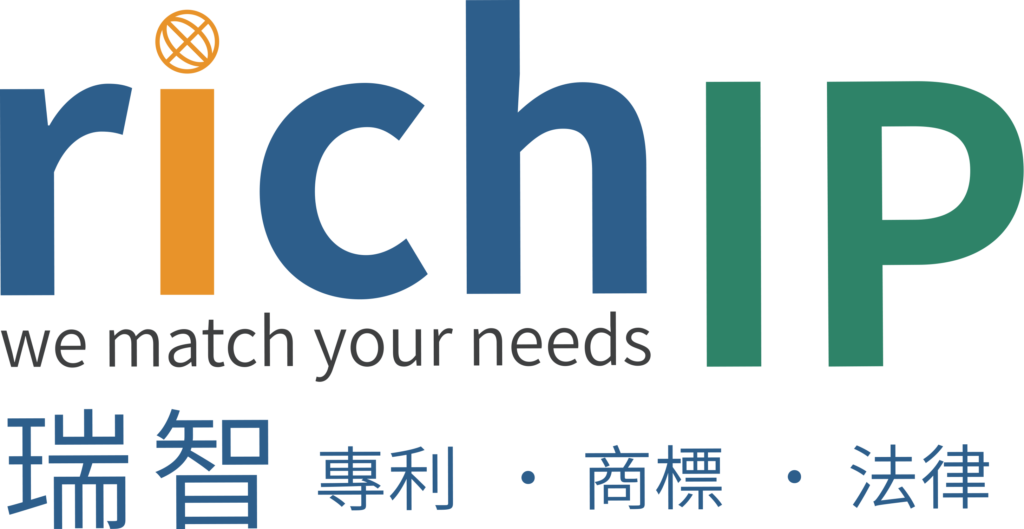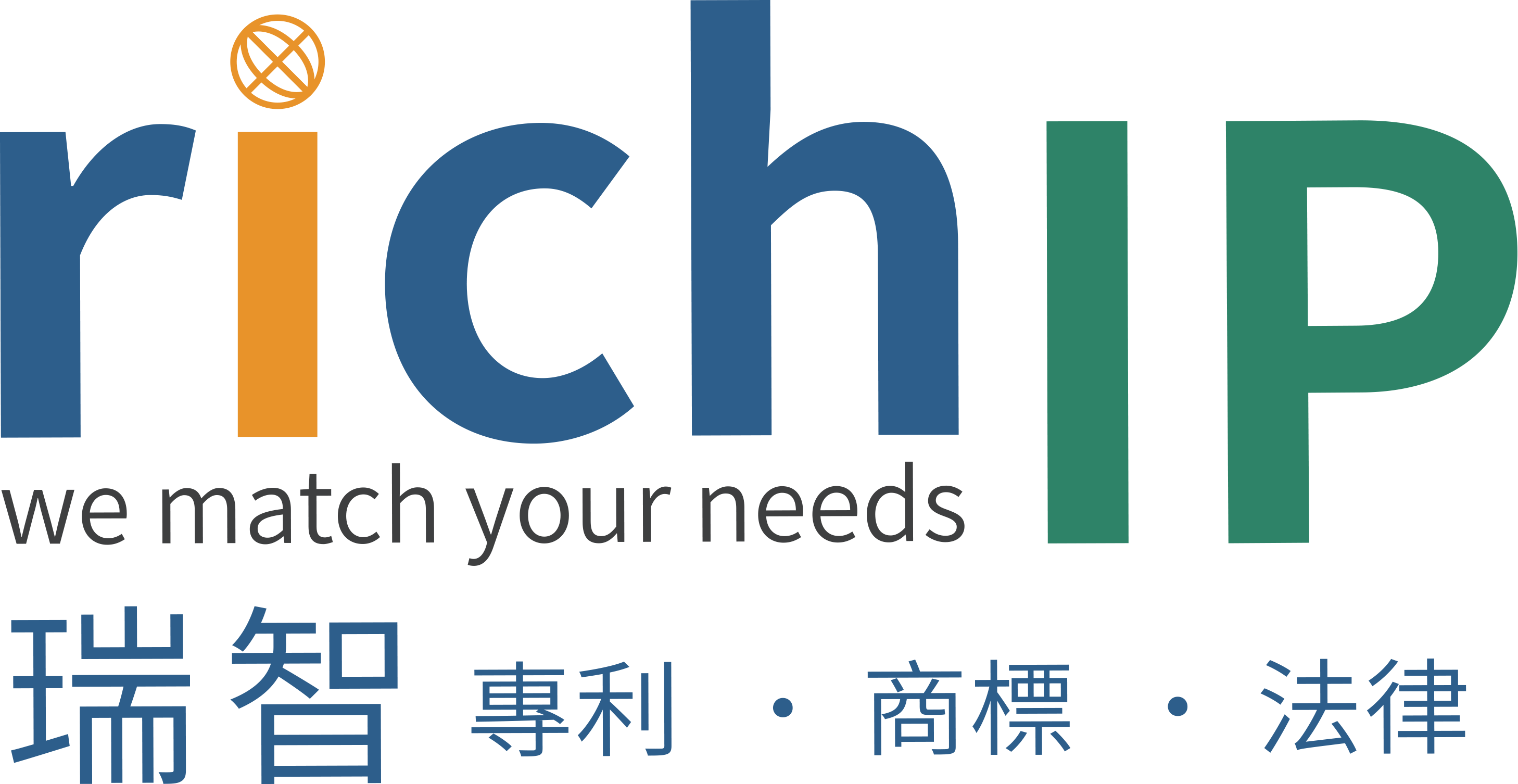News Topics
I. [CN] China will become a member of Hague Agreement
III.[US] Scholars questioned the genericness of trademarks in the internet era
I. China will become a member of Hague Agreement
According to current practice, when a Chinese applicant wanted to apply for a design patent in other countries, it was necessary to prepare multiple application documents in multiple languages and submit applications to each country separately. This process takes a lot of time and expense.
The good news is that China has applied to join the Hague Agreement this year, and it will enter into force in China on May 5, 2022. That way, the motivation of Chinese applicants to seek design patent protection in other countries and of applicants from other countries to seek the protection in China is expected to increase.
An application filed under the Hague Agreement may include up to 100 designs belonging to the same class (first class) of the Locarno Classification (LOC). However, in the national phase, the specialized authorities of certain Contracting Parties may refuse some requests based on the substantial elements of their domestic law requirements. On this matter, Applicants can refer to the Guidance from WIPO to reduce the chance of refusals, or be prepared for division or modification.
In addition, since the application procedure under the Hague Agreement will include the cost of delivering documents to the International Bureau and the subsequent designation to enter different countries, if the country in which the applicant expects to designate in the future is, for example, less than four countries, the cost of going through the Hague Agreement may not necessarily less than that of individual applications for each country. On this matter, Applicants can refer to the Fee Calculator produced by WIPO for further consideration.
It should also be noted that Hong Kong and Macau are special administrative regions with independent intellectual property units. Therefore, both regions are not being included unless there are otherwise notification.
References
Hyperlink: Guidance for mitigating the risk of refusals
Hyperlink: Hague System Fee Calculator
Chun-Wei Lo
Patent Counselor of RichIP Group
II. Artificial Intelligence Search Available for Invention and Utility Model Patent Applications in Korea
The Korean Intellectual Property Office (KIPO) started to develop an artificial intelligence (AI) search system (hereinafter referred to as “Search System for Technical Patent Applications”) for the examination of invention and utility model patent applications from the end of 2021, and inaugurated the search system on March 25, 2022.
In the “Search System for Technical Patent Applications”, AI can, in lieu of the user, automatically look up the key words or sentences from a patent application document to be examined, and then search relevant prior-art references and further rank the searched prior-art references based on their respective similarity. Considering search accuracy, KIPO has built a huge database for AI by about five million patent documents, such that AI can do a patent search based on information of these patent documents (e.g., key sentences, Cooperative Patent Classification (CPC) codes, etc.).
Actually, before developing the “Search System for Technical Patent Applications”, KIPO has utilized AI for trademark search or design patent search. It can be seen that KIPO has applied AI technology to various areas of intellectual property step by step, thereby improving examination efficiency and accelerating digitization of examination.
References
Korean Intellectual Property Office
Jason hung
Patent Counselor of RichIP Group
III. Scholars questioned the genericness of trademarks in the internet era
In 2012, David Elliott and Chris Gillespie (“Elliott”for short) claimed that the text trademark “GOOGLE” should be understood as a generic name for goods or services, and therefore filed a petition for revocation. One of Elliott’s main arguments was that “the public has used GOOGLE as a verb with a meaning of internet searching, which constitutes generic use”, but ultimately the Ninth Circuit Court of Appeals disagreed with the argument and made a judgment in favor of Google LLC in 2017.
In brief, the Ninth Circuit Court of Appeals expressed that Elliott misunderstood the definition of genericness of a trademark, and stated that genericness of a trademark can only be established if the primary significance of the trademark to the public was the name of a particular good or service and unrelated to its source. In this way, the main issue in this case should be “whether the primary significance of the word “GOOGLE” to the public is a generic name for an internet search engine on the Internet, or a mark to identify the Google search engine.” The latter cannot constitute genericness. That is to say, generalization is subject to public perceptions, and the judgment quoted J. Thomas McCarthy[1] as saying that “over time, the holder of a valid trademark become a “victims of genericide.”
However, in the internet era, people rely heavily on Internet search engines to search for trademarks. Based on this premise, scholar Cameron Shackell re-raises the question of “Is genericness still adequately defined?”[2] He uses the GOOGLE case as an example[3], and states that GOOGLE participates in the search process and enjoys structural and semantic advantages in the minds of consumers, the trademark granted to the search firm is economically equivalent to a generic trademark, and should be sufficient to constitute a new class with the function of “super generic.”
Shackell discusses this issue primarily from an economics perspective and a consumer decision-making perspective. First, he modifies the model of the economic effects pertaining to trademark law proposed by Landes and Posner’s (1987), and points out that the technology for producing information has become an important factor affecting the price of goods in the internet era, because the firm providing search directly affects the search cost of the consumers’ search for specific items. Dominant firms are believed to be able to monopolize the attention of consumers, and can also charge advertising fees from other firms with the needs of reducing search cost and spotlighting their marks. In the past, few firms may enjoy monopolistic returns through a reflexive use of trademark system itself. However, the systemic impact of this is obscured by providing free searching.
Shackell goes on to point out that this effect is more evident in the sequence of using generic terms and trademarks in consumer decision making. In the past, consumers usually search for a trademark by generic terms related to the trademark. In the internet era, consumers need to know the trademark of the firm (e.g. GOOGLE) with service of search before the searching process, that is, the trademark of the firm occurs at search initiation in any search and will appear along with all generic terms. Moreover, GOOGLE’s influence on consumers is not limited to internet searches, consumers actually use search pages to find many other trademarks, GOOGLE should therefore be considered “super generic.”
To sum up, Shackell believes that trademarks such as GOOGLE are indeed a special case caused by the changes of the times, and should be further explored to avoid outdated regulations leading the rise of monopolists. However, he also acknowledges that the social costs and hidden externalities of such trademarks are ubiquitous and complex, and that it may take many years to fully perceived and understand. Therefore, he believes that at this stage, it may only be possible to rely on common law precedent to heal the system and hopes that the court will pay attention to the reflexive of such trademarks and explain the super-generic nature as a multiplier of traditional evidence.
[1] Author of 《McCarthy on Trademarks and Unfair Competition》, Fourth edition, 1998
[2] Cameron Shackell, 2021,《Science, Technology, & Human Values》,DOI:10.1177/01622439211055482
[3] According to a statistic on November, 2020, Google Search website has the most page views
References
Hyperlink: The judgment of Ninth Circuit Court of Appeals
Hyperlink: The full-text article of Shackell
Chun-Wei Lo
Patent Counselor of RichIP Group

